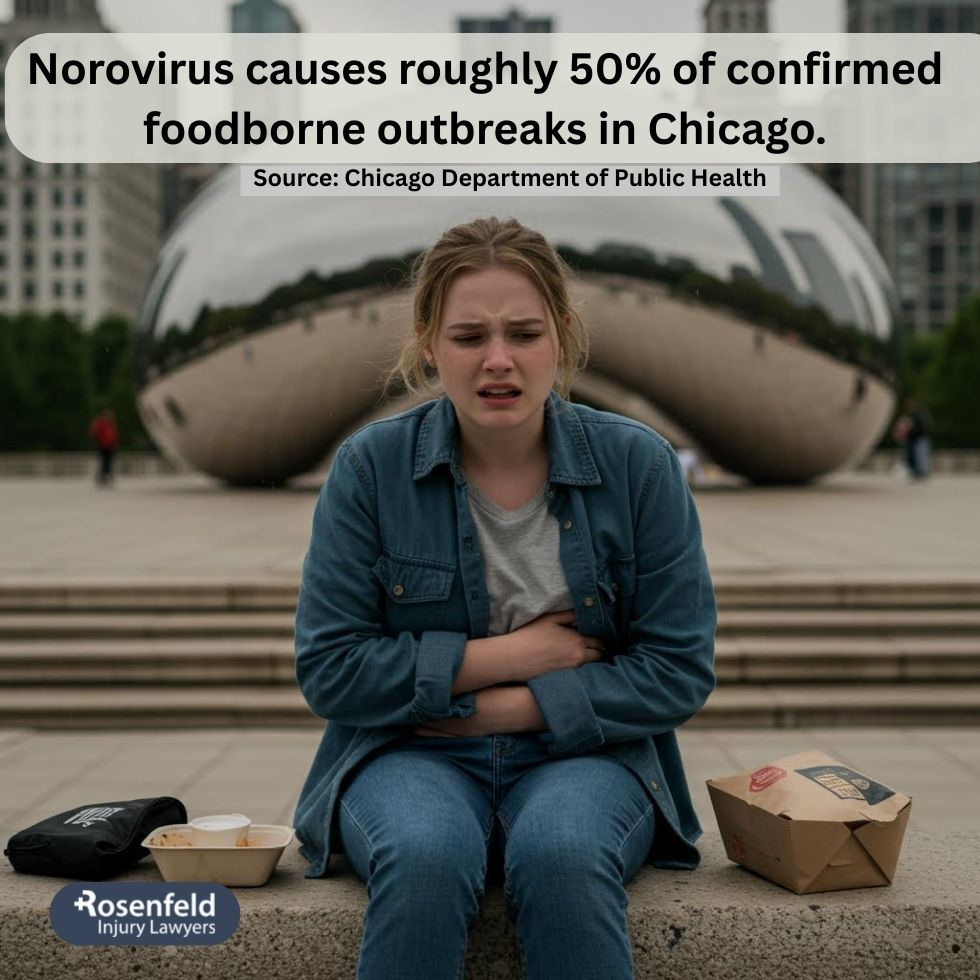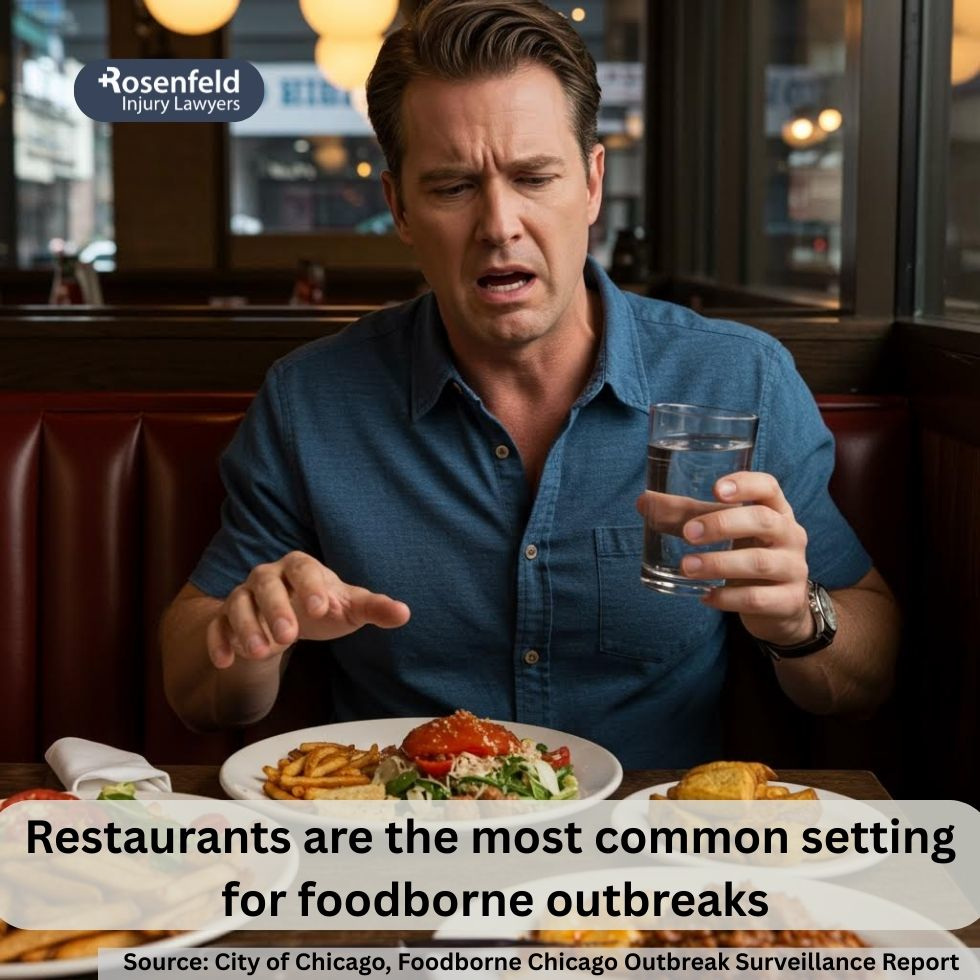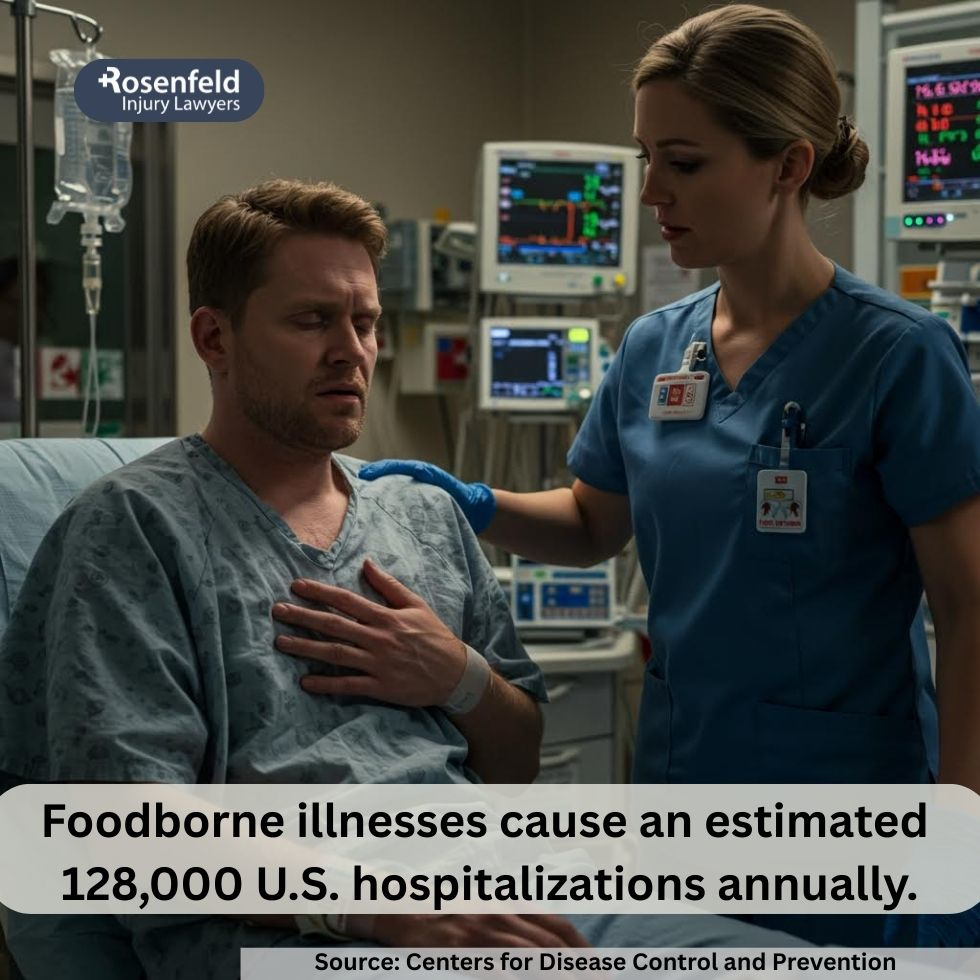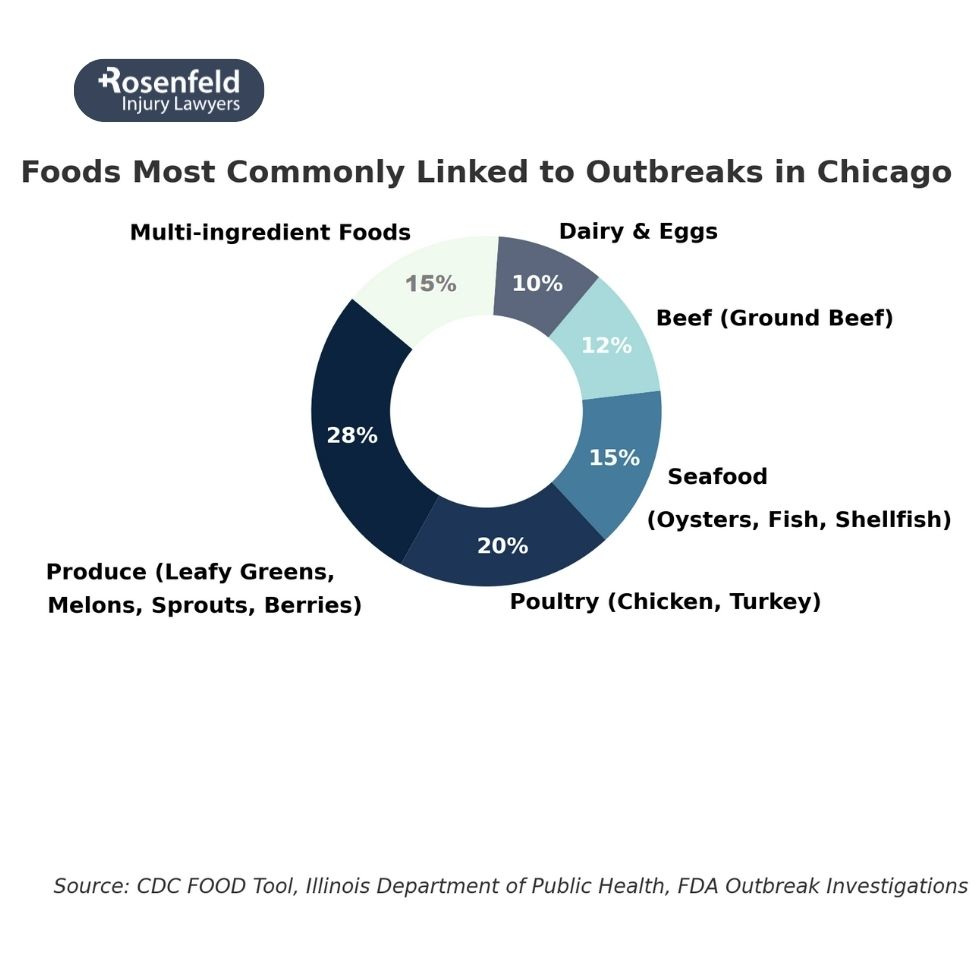Award-Winning Chicago Personal Injury Lawyer - Securing Justice
for Illinois Injury Victims - Over $450 Million Recovered
Whether it’s a quick meal from a neighborhood restaurant, catered food at a downtown event, or groceries from a local store, when contaminated food makes you sick, the impact can be overwhelming. Our trusted Chicago food poisoning lawyer team fights to hold negligent businesses accountable and secure the compensation our clients need for their medical expenses, lost wages, and long-term recovery.

At Rosenfeld Injury Lawyers, we’ve secured more than $450 million in verdicts and settlements for injured clients, including those harmed by contaminated food and foodborne illness cases. Our firm has been consistently recognized by leading legal organizations for excellence in client advocacy, including:
With nearly 25 years of experience representing food poisoning victims in Chicago, we understand the toll these cases can take—financially, physically, and emotionally. From handling emergency hospitalizations to long-term complications, our attorneys know how to build a strong case and pursue the fair compensation you deserve.
Here are some of the most common foodborne illness cases we handle:
Bacterial Infections
Viral Infections
Parasites
Toxins in Food
Living in a city as vibrant as Chicago means we’re spoiled with world-class restaurants, food festivals, and grocery markets. Many foodborne illnesses are caused by:

While symptoms can vary depending on the pathogen, most food poisoning victims in Chicago report:
Food poisoning victims can recover economic damages to cover the financial costs of a serious illness caused by contaminated food, including:
They may also recover non-economic damages, such as:
In severe cases, when a loved one dies from a foodborne illness, surviving family members may file lawsuits to recover damages for:

The average food poisoning case payout is $1,635,786, while the median recovery is around $44,000. Reported settlements and verdicts range from as little as $500 to more than $13.5 million.
Factors that impact settlement amounts include:
Chicago food poisoning lawsuits can be filed under several legal theories:
Strict Liability – Businesses that sell contaminated food can be held responsible even if they weren’t negligent. To succeed, we only need to prove that the food was unsafe when it reached you and that it caused your serious illness. This rule applies to restaurants, grocery stores, and companies involved in food production.
Negligence – Here, we must show that a restaurant, distributor, or food handler failed to use reasonable care, such as by serving undercooked meat, mishandling ingredients, or ignoring food safety standards. When that breach leads to a foodborne illness, the business can be held liable for damages.
Breach of Warranty – If manufacturers and distributors fail to meet their obligations that their products are safe—such as selling spoiled or contaminated products—victims can file a lawsuit for breach of warranty. This type of claim often applies when food recalls reveal safety problems in items like improperly canned goods or unpasteurized milk.
Proving liability in food poisoning cases often requires scientific testing, expert reports, and careful tracing of where the food came from. While it may seem obvious what caused your illness, legally proving it can be complex.
Restaurants, distributors, and large production companies often deny responsibility or blame other sources. These corporations have powerful defense teams, and victims without strong legal representation risk walking away with nothing.
Our Chicago food poisoning lawyers will:

Nationally, the Centers for Disease Control (CDC) estimates that major pathogens cause:
The Illinois Department of Public Health recently confirmed a Salmonella outbreak connected to undercooked ground beef, with at least 26 confirmed cases in Chicago and nearby counties.
This is just one of many food poisoning outbreaks investigated by city and state health agencies each year. In fact, it is estimated that more than 300,000 Chicago residents experience some form of foodborne illness each year.
Our work as Chicago food poisoning lawyers has shown that outbreaks often start in places where large amounts of food are prepared, served, or sold. In Chicago, some of the most common locations include:
The Illinois Food, Drug, and Cosmetic Act (410 ILCS 620/) prohibits the sale of contaminated food and sets safety standards for food production, distribution, and sale. If a restaurant or supplier violates this law, victims can use the violation as powerful evidence in food poisoning lawsuits.
The Chicago Municipal Code covers food service sanitation in several chapters:
Under the Illinois statute of limitations for personal injury cases (735 ILCS 5/13-202), you generally have two years from the date of your illness to file a lawsuit. Families bringing a lawsuit after losing a loved one to a serious illness caused by contaminated food also have two years from the date of death to file (740 ILCS 180/2).
If your illness came from food contamination at a Chicago Public School, city hospital, or government-run facility, special notice requirements and shorter deadlines may apply. In rare situations, the time limit may extend if the link between your illness and the contaminated food wasn’t immediately known.
Missing these deadlines can permanently bar your claim, no matter how strong the evidence. That’s why it’s critical to speak with an experienced food poisoning lawyer as soon as possible. Our law firm offers a free consultation and will immediately begin preserving evidence before it’s lost.
Liability in Chicago food poisoning cases depends on where the contaminated food entered the chain. Potential defendants include:
Businesses and insurers often fight food poisoning lawsuits by:
Our role as your Chicago food poisoning lawyers is to counter these arguments with medical records and expert testimony to prove where the illness started.
The steps to take to preserve your legal rights after experiencing food poisoning include:
At Rosenfeld Injury Lawyers, you pay nothing up front. Our food poisoning attorneys work on a contingency fee basis, so you only pay if we win your case.
Yes. Victims of contaminated food can file food poisoning lawsuits against restaurants, grocery stores, caterers, or manufacturers. Claims may be based on negligence, strict liability, or breach of warranty.
Strong foodborne illness cases often include lab tests, proof of contamination, receipts, and other records linking your serious illness to the source.

If you’ve experienced food poisoning from a restaurant, grocery store, or catered event, you don’t have to face the aftermath alone. Our team at Rosenfeld Injury Lawyers has handled countless food poisoning cases in Cook County and across Illinois, helping victims recover compensation for medical bills, lost wages, and lasting health complications.
Our Chicago personal injury lawyers offer a free case evaluation to review your situation and explain your legal options. Contact us today.
All content undergoes thorough legal review by experienced attorneys, including Jonathan Rosenfeld. With 25 years of experience in personal injury law and over 100 years of combined legal expertise within our team, we ensure that every article is legally accurate, compliant, and reflects current legal standards.